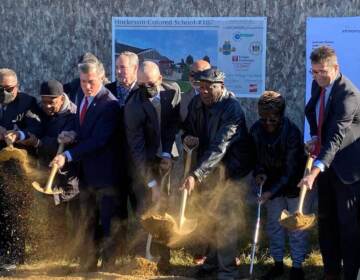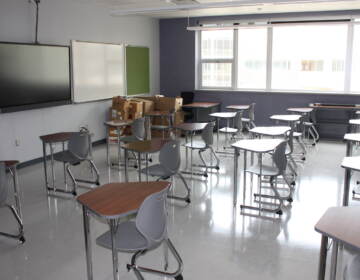Now a historic site, Hockessin’s former segregated school celebrated on Brown v. Board of Education Day
The brick building was once a one-room schoolhouse, and the only one local Black students could attend. Now it’s part of the National Park Service.
Listen 1:27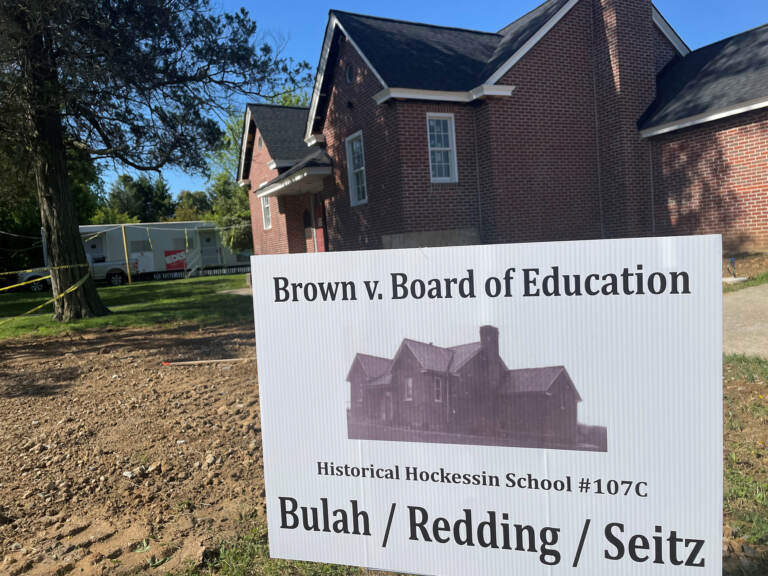
The building will become a center for diversity, inclusion and social equity. (Cris Barrish/WHYY)
LeRoy Peterson beamed Tuesday when he joined former classmates at the site of the one-room segregated elementary school in Hockessin they attended more than 70 years ago.
“I never thought that our school would have been, you know, revamped,” Peterson said as he gazed at the Tyvek-wrapped brick schoolhouse that’s being renovated and will soon join the national park system.
“It’s just a wonderful feeling to know that they are re-doing it and we’ll get to walk through those doors again,” said Peterson, an 82-year-old retired mechanic.
A decade ago, the old Hockessin Colored School #107 had been saved from a sheriff’s sale and razing. But last month, Congress voted to have it become one the National Park Service’s historic sites for its role in the momentous 1954 U.S. Supreme Court decision that desegregated schools in America.
The school was the centerpiece of a 1952 Delaware court case known as Bulah v. Gebhart, which would be combined with four other cases to become the Brown v. Board of Education case. Wilmington’s Howard High School of Technology, formerly Howard High School, was also part of the case and will be a historic park service site.
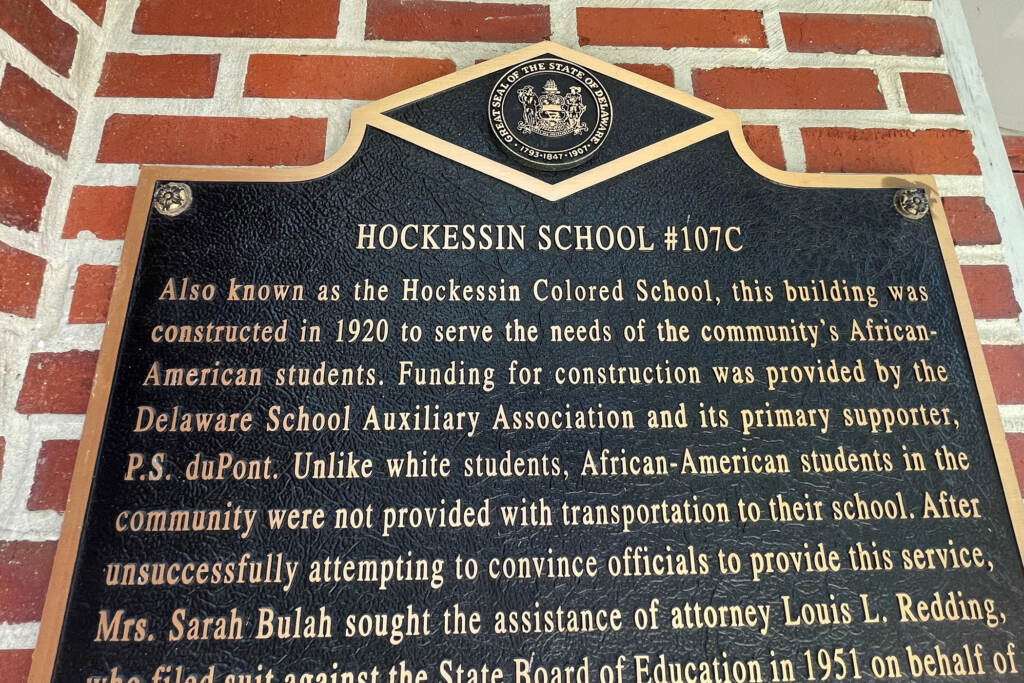
While contractors worked inside the gutted brick building, Peterson was on hand to join dozens of students, educators, and politicians at the school to celebrate Brown v. Board of Education Day and another celebration for Shirley Bulah.
Bulah’s parents Fred and Sarah fought successfully to have her ride the school bus to attend the better-equipped and staffed school nearby that was only for white children.
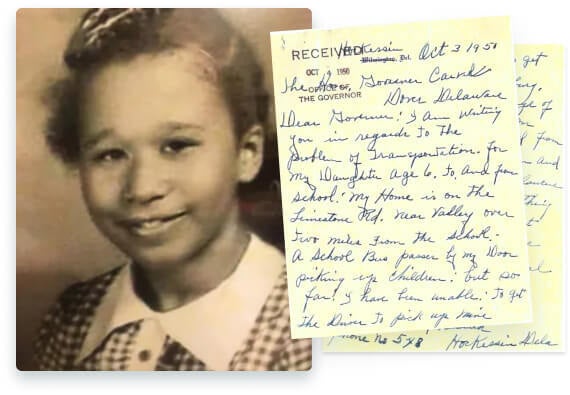
The website for the Friends of Hockessin Colored School #107 quotes Bulah as saying: “Our books and things … we would get the cast-offs. Some of them didn’t have pages, some of them didn’t have backs, they were all written in and tore up. So it was kind of like we were the hand-me-downs … not ‘kind of’, we were.”
That’s the learning environment that Peterson and classmates Lois Johnson, Charles Johnson, and Robert Berry endured during the period from late 1946 to 1952. The four shared stories and memories on Tuesday.
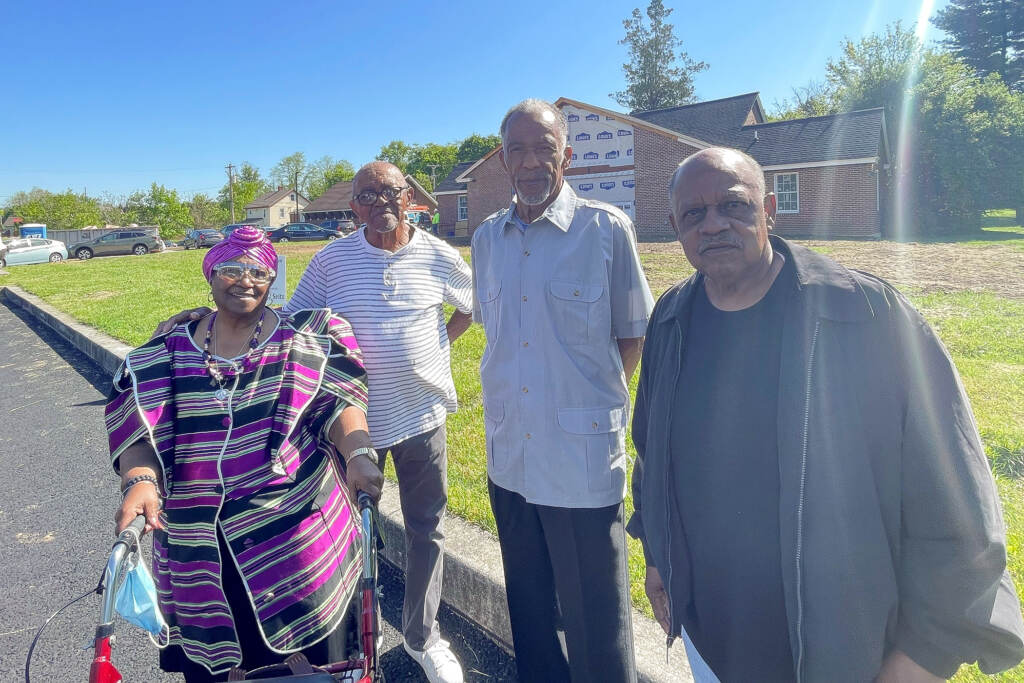
“We had roughly 20 to 25 students and it was six grades,” Peterson recalled. “And in my particular class there was probably maybe eight students.”
Board member Dr. Ray Blackwell, chief of cardiac surgery at ChristianaCare, was equally delighted Tuesday. Other board members include Delaware Supreme Court Chief Justice Collins J. Seitz Jr., whose father ruled in Bulah’s favor 70 years ago, and Delaware State University President Tony Allen.
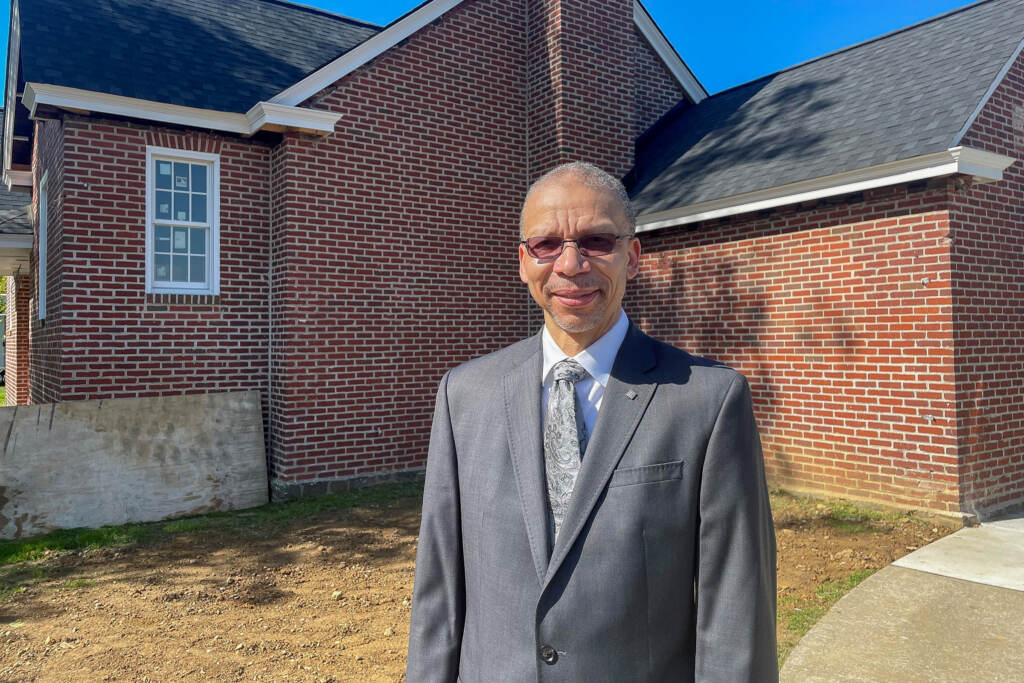
“This is an historic site,” Blackwell said. “What happened here changed the face of American society years ago. And we want to honor those people that were involved in those cases then.”
In December, state leaders broke ground on a construction project to preserve and reimagine a new use for the building. The facility will be transformed into the Center for Diversity, Inclusion, and Social Equity. It will be a place to deliver “living” history lessons and host community conversations, as well as serve as a hub for innovation and collaboration.
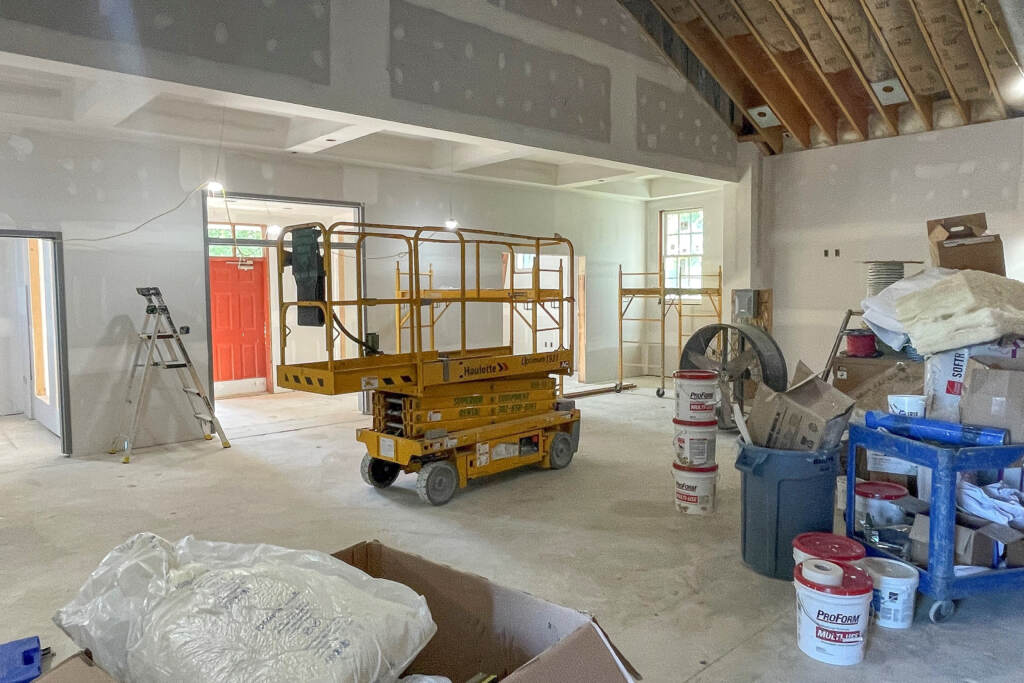
“We want to make sure that this place is preserved and that people are remembered forever,” Blackwell said. “What happened here is nothing short of a miracle, and I believe that to dishonor it would be just a huge mistake.”
He noted that President Joe Biden, who lives a few miles from the school, signed the legislation designating it as a historic site last week, and honored former students at the White House.

“So our site and the history here is preserved forever,” he said.
Peterson said he’s gratified that he’ll see the transformation with his own eyes.
“Yeah,” he said. “In my lifetime.”
WHYY is your source for fact-based, in-depth journalism and information. As a nonprofit organization, we rely on financial support from readers like you. Please give today.



